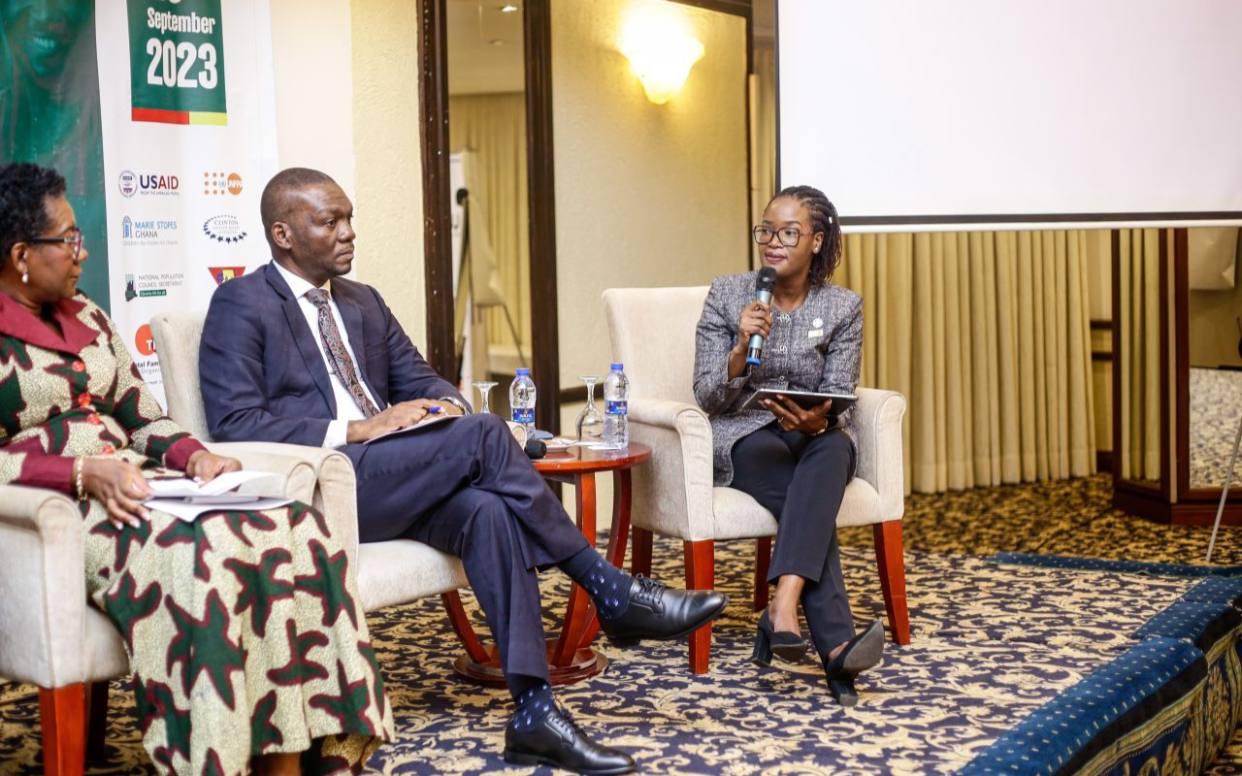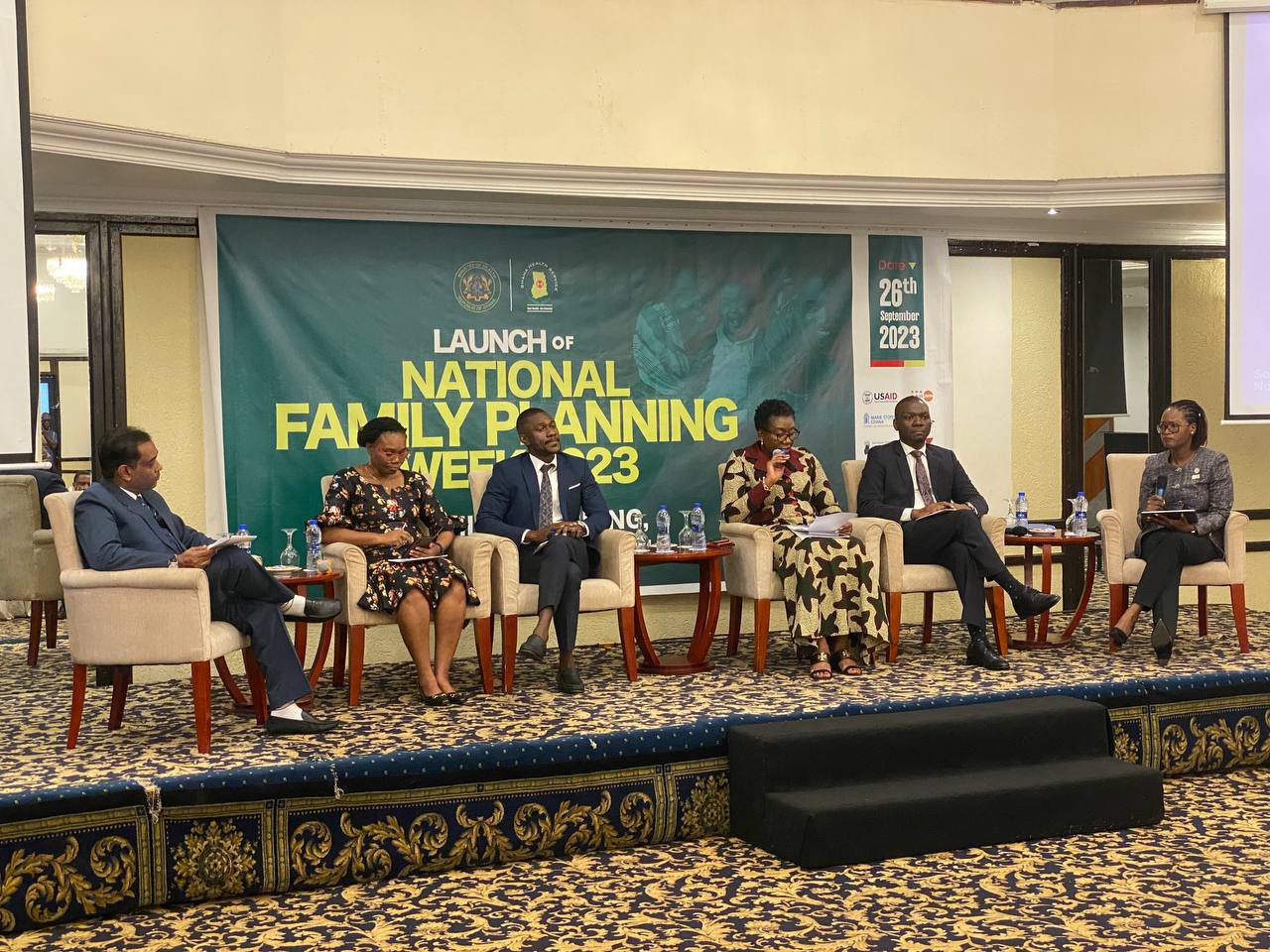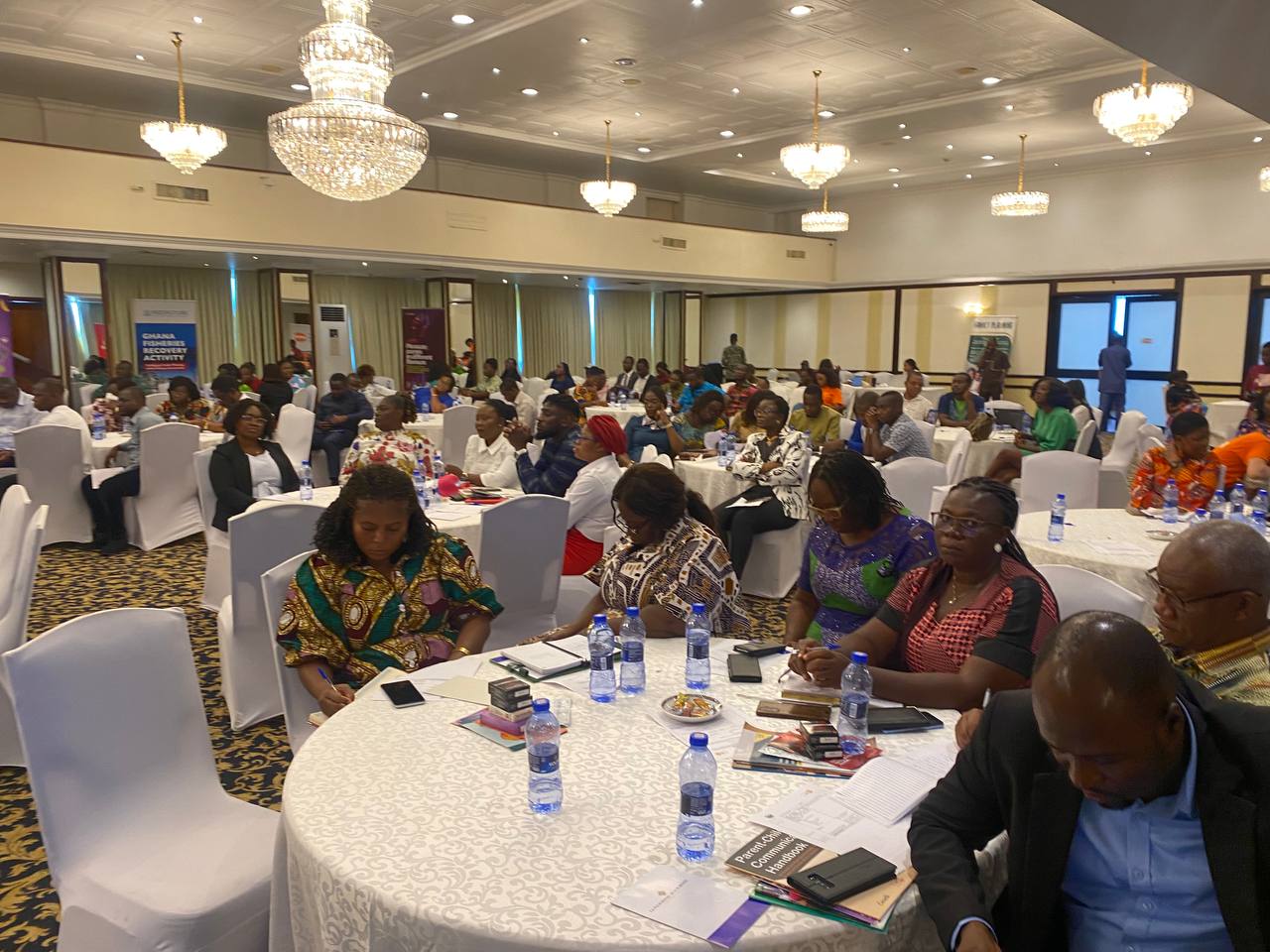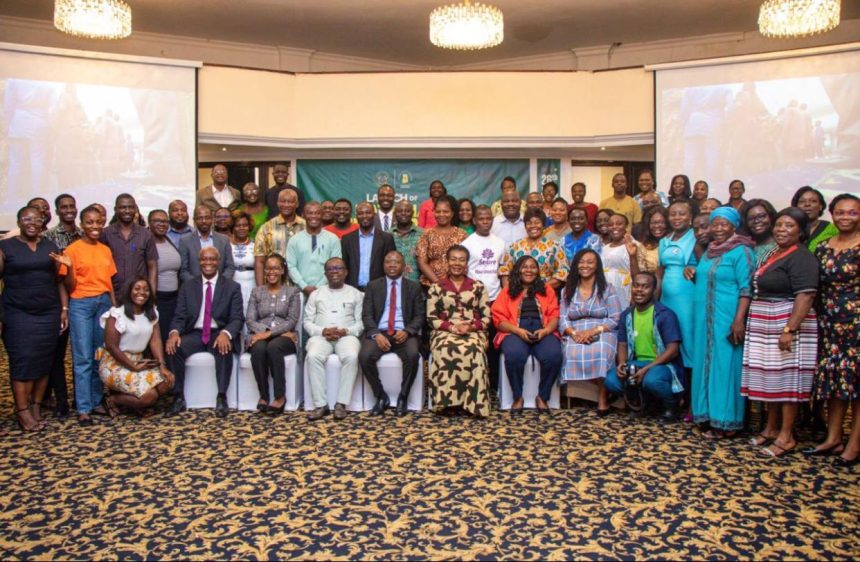In a joint collaboration between the United Nations Population Fund (UNFPA) Ghana, the Ghana Health Service, the United States Agency for International Development (USAID) and other partners, the 2023 Family Planning Week was officially launched on Tuesday, September 26, 2023, coinciding with the celebration of World Contraceptive Day.
The event, held under the theme “Family Planning, My Choice, My Freedom,” aimed to underscore the significance of choice in reproductive health and the need for increased access to family planning services in Ghana.
During the launch event, Country Representative of UNFPA Ghana, Dr. Wilfred Ochan, who gave his remarks virtually, stressed the importance of empowering individuals, which has a positive impact on both maternal and child health, as well as gender equality and sustainable development.
Dr. Ochan emphasized that family planning goes beyond contraception, as it grants young people the autonomy to shape their lives, determine the size of their families, and plan the timing of their pregnancies.
“when individuals have the freedom to make these choices, it leads to healthier families, stronger communities, and a more prosperous nation, he said.
Furthermore, Deputy Representative of UNFPA Ghana, Dr. Emmily Naphambo, who spoke to UniversNews after the launch also emphasized the critical role of choice in reproductive health.
She stated, “The significance of the theme comes from the perspective of choices. When we are talking about reproductive health commodities, we should have choices available for all types and groups of people.”

Dr. Naphambo further highlighted the significance of the theme, stating that the essence of choice lies at its core.
“When we are talking about reproductive health commodities, we should have choices available for all types and groups of people,” she said. “It is not her service provider’s choice; it’s her choice.”
This theme, she added, addresses the multifaceted choices that women and girls should have concerning their reproductive health.
Ghana has made significant progress in family planning, with an average 5% increase in uptake for family planning and modern contraceptives. However, Dr. Naphambo expressed concern over the country’s unmet need for family planning.
She pointed out a worrying rise in teenage pregnancies, indicating that adolescent girls are not accessing the necessary reproductive health services and commodities.
“As a country, we have come so far, roughly right now we are talking about an average of 5% increase in uptake for family planning and the use of modern contraceptives and that is worrisome. Our unmet need for family planning remains a concern. Statistics have showed that at the moment here in Ghana, we are seeing a rise in teenage pregnancies and what does that mean? It means our adolescent girls are not having access to reproductive health services and commodities,” she said.
The statistics reveal a striking urban-rural divide in contraceptive choices. Urban populations tend to opt for traditional contraceptives, while rural populations prefer modern contraceptives.
“We have seen a lot of urban people opting not to use modern contraceptives and opting for traditional contraceptives. Conversely, we have seen rural populations opting for modern contraceptives and not the traditional ones,” she added.

This divergence in choices poses a challenge to achieving the national target of reducing the maternal mortality rate to 70 per 100,000 live births. Currently, Ghana’s maternal mortality rate stands at 3 per 10 live births, with teenage pregnancies being a significant contributing factor.
Dr. Naphambo emphasized that family planning plays a crucial role in reducing maternal mortality, particularly among young girls. Most maternal deaths occur among young girls due to teenage pregnancies, highlighting the urgency of addressing the unmet need for family planning services.
“We had said we would want to reach 70 per 100,000 live births, maternal mortality rate. As it is now, we are still at 3 per 10. With the current unmet need, that is farfetched and we cannot get there. Family planning contributes to the reduction of maternal mortality. It reduces because most of the people who are dying while giving birth are young girls. They are young girls because of the teenage pregnancy factor,” she said.
Director of Family Health Division at the Ghana Health Service, Dr Kofi Issah, before launching the celebration highlighted that while Ghana has made strides in modern contraceptive use among women, there are still challenges in reaching out to young people.
He emphasized the need to address these gaps, particularly in youth access to contraception.
“There still remains a large unmet need for contraception in the county. Despite the almost universal knowledge in family planning (over 90%), practice of contraception remains low at 28% married women for modern methods, whilst 23.% of sexually active have an unmet need for family planning”
“A number of socio-economic and cultural factors are mainly responsible for the low utilization of available maternal health services, and family planning services are no exception to this. Fear of side effects, rumours, myths and misconceptions are the most frequently cited reasons for non use of modern family planning methods. Poor attitude of health workers and provider bias are also deterrents to utilization and efforts are being made to address this,” he said.
He further emphasized that the main objective of the celebration is to raise public awareness and acceptance of family planning while dispelling myths and misconceptions surrounding it and advocating for increased commitment to it as a vital component of national health and socio-economic development.
“As we commemorate the 2023 annual family planning week our main objective will be to increase public awareness, acceptance of family planning, dispelling myths and misconceptions and to advocate increased commitment to Family Planning as an essential component of national health and socio-economic development,” he said.
In response to these challenges, the 2023 World Contraception Day serves as a platform for UNFPA and its partners to collaborate with the government, the private sector, and multisectoral partners.
Together, they aim to discuss opportunities and strategies for practically mobilizing domestic resources to support family planning supplies and services in Ghana.

As the world commemorates World Contraception Day, the focus on “Family Planning, My Choice, My Freedom” reaffirms the importance of providing individuals, especially women and girls, with the autonomy to make informed decisions about their reproductive health.
UNFPA Ghana and its partners remain committed to addressing the unmet need for family planning in Ghana, ensuring that every individual has the choice and freedom to plan their family and future.
–
Story by: Kelly Adjetey Boye | univers.ug.edu.gh




